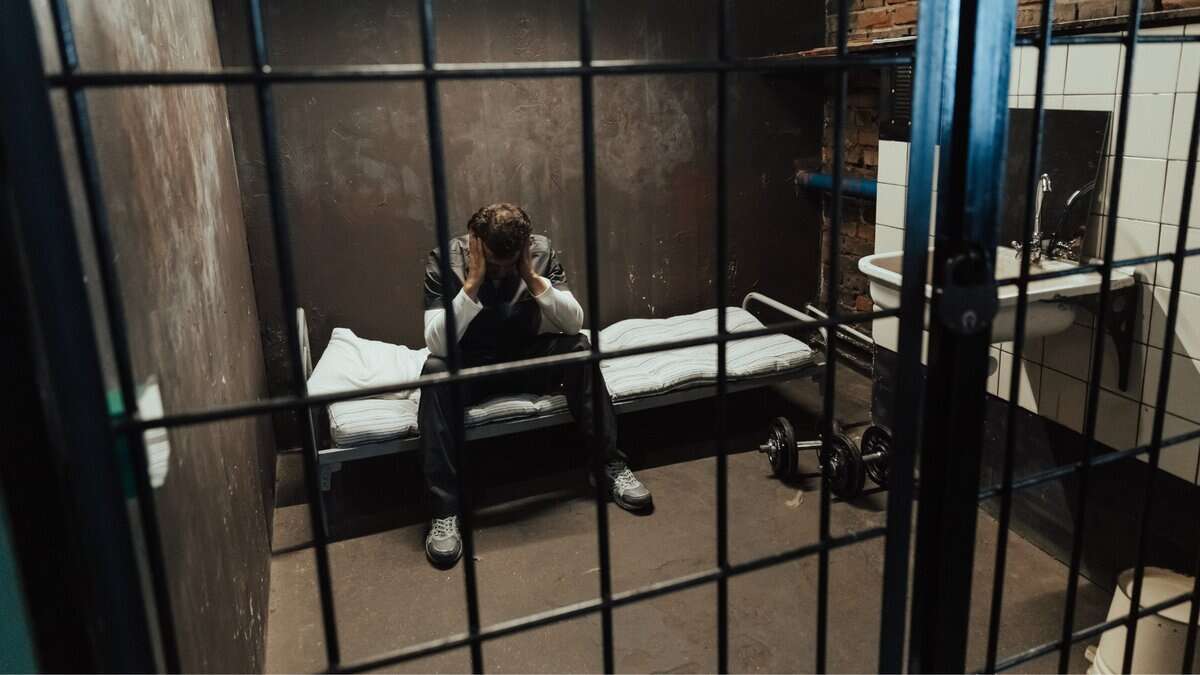
Mental health remains a deeply neglected dimension of India’s prison system—a system already under pressure from overcrowding, poor infrastructure, and chronic understaffing. While conversations around mental well-being have slowly gained traction in public health and policy discourse, the psychological needs of incarcerated individuals are routinely overlooked. The situation in Indian prisons is nothing short of a silent emergency, where thousands of inmates suffer in isolation without access to the most basic mental health services.
According to an important synthesis of research by Raghavan and Rabiya (2018), titled Prison Mental Health in India: Review, psychiatric disorders such as schizophrenia, depression, adjustment disorders, and substance-use disorders are disproportionately prevalent among Indian prisoners. They cited a study in their work which found that suicide was the cause of death in nearly 8% of autopsies conducted on deceased prisoners. This alarming statistic points to the severity of untreated mental illness and psychological distress behind bars.
Yet, despite these findings, systemic attention to mental health in prisons remains strikingly absent. Between 2000 and 2017, only 12 original research studies have systematically explored this issue in India, revealing a serious gap in knowledge and policy responsiveness. Without data, there is no urgency. Without urgency, there is no change.
The mental health burden of incarcerated people is not simply a result of pre-existing conditions but is often aggravated, even triggered, by the prison environment itself. Indian prisons, notorious for overcrowding and understaffing, are hotbeds of emotional and psychological strain. The lack of privacy, exposure to physical and emotional violence, extended periods of confinement, uncertainty about legal outcomes, poor sanitation, and inadequate contact with the outside world all compound mental stress. Undertrial prisoners—who make up over two-third of India’s prison population—are particularly vulnerable, often detained for years while awaiting a trial that may never materialise.
Despite the clear legal mandate under the Mental Healthcare Act of 2017, the state of mental health services in Indian prisons remains deeply inadequate. The Act requires that all prison medical officers be trained in mental healthcare and mandates the establishment of at least one prison with a dedicated mental health facility in every state. Yet, the reality on the ground tells a different story. According to the India Justice Report 2025, only 25 psychologists or psychiatrists are available to serve the 1,330 prisons across the country—equating to just one mental health professional for every 22,929 prisoners. This is a far cry from the Model Prison Manual, 2016, which recommends one professional for every 500 inmates.
Even more concerning, 25 states and Union Territories have no psychologists or psychiatrists on their prison staff at all. In some cases, token appointments are made, but there is little evidence of sustained or institutionalised efforts to integrate mental healthcare into the correctional system. What emerges is a troubling gap between policy and practice—a legal framework that exists more on paper than in practice. A recent study by Bansal and Motiyani (2025), Rethinking on the Interplay of Substance Abuse and Mental Health in Indian Prisons: A Critical Analysis, highlights the severity of this disconnect. The authors argue that chronic underfunding and the acute shortage of trained professionals have compounded the crisis. Even where mental health experts are employed, they are often hindered by inadequate staffing, the absence of post-related support systems, and a lack of proper housing and treatment facilities for inmates with serious mental health needs.
That said, a few notable interventions have shown promise. Vipassana meditation, introduced in Tihar Jail, and Sudarshan Kriya Yoga have demonstrated positive effects on the emotional well-being of prisoners. These practices, while helpful, remain isolated experiments rather than standardised protocols. Moreover, their spiritual nature cannot substitute for professional psychiatric care, especially in cases requiring clinical intervention.
A recurring theme in prison mental health studies is that individuals with low emotional intelligence and poor coping mechanisms are more susceptible to psychological breakdowns. The absence of trained counsellors or social workers who can identify and support such inmates only deepens the crisis. Without targeted therapy or rehabilitation frameworks, prisoners remain trapped in a cycle of trauma, rage, and hopelessness.
Addressing this crisis requires a comprehensive structural shift, not mere band-aid solutions. First, full-time psychiatric units must be embedded within prisons, particularly in large central jails. Second, training prison staff in mental health first aid can help identify early signs of distress and de-escalate crises. Third, robust referral systems must be developed to link prisoners with nearby mental health institutions, especially in cases requiring specialised care.
Equally important is the introduction of routine psychological assessments for all inmates at the time of entry, during incarceration, and prior to release. Continuity of care is often ignored in the rush to close prison files post-release. However, for many former prisoners, the stigma, alienation, and trauma follow them long after they have served their sentence. Post-release, mental health care—offered through linkages with public hospitals or civil society organisations—can aid reintegration and reduce rates of recidivism.
What makes the current scenario especially frustrating is that the legal and policy frameworks to address this crisis already exist. From the Mental Healthcare Act to the Model Prison Manual, the language of care is present on paper. However, the translation of these mandates into actionable and measurable improvements has been negligible.
Why does this matter? Because a criminal justice system that ignores the mental health of those it incarcerates fails in both its rehabilitative and constitutional responsibilities. It not only violates the right to health but also undermines the possibility of reform and reintegration for individuals who have already been stripped of their freedom.
If we truly believe that prisoners are human beings deserving of dignity, then the mental health crisis within our jails must be treated with the seriousness it demands. It is time for policymakers, prison administrators, mental health professionals, and civil society to come together to create a system that supports healing, not just punishment.
In the end, how we treat our most vulnerable—even when they are behind bars—reflect our society’s moral compass. And right now, that compass is pointing in the wrong direction.




